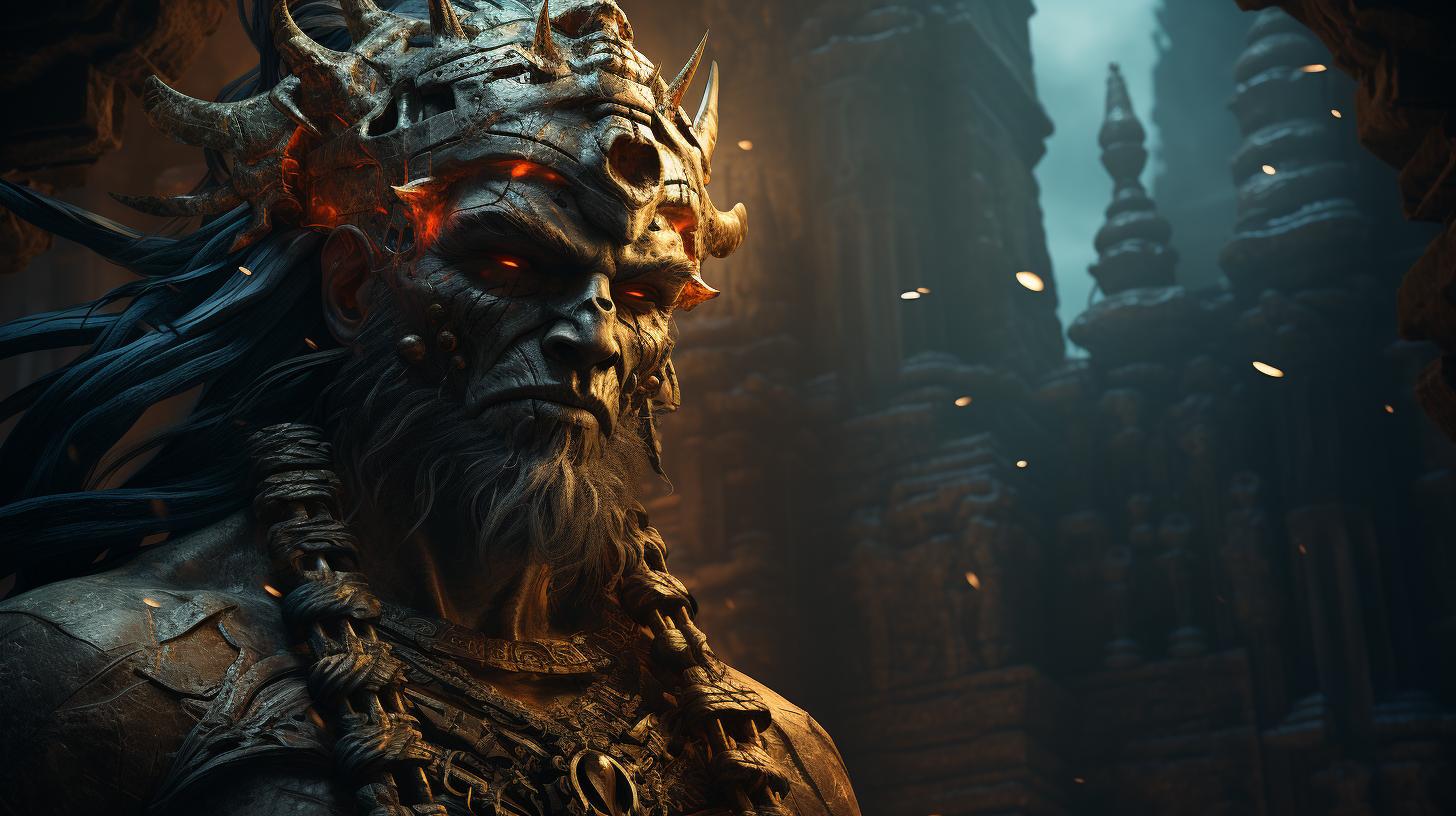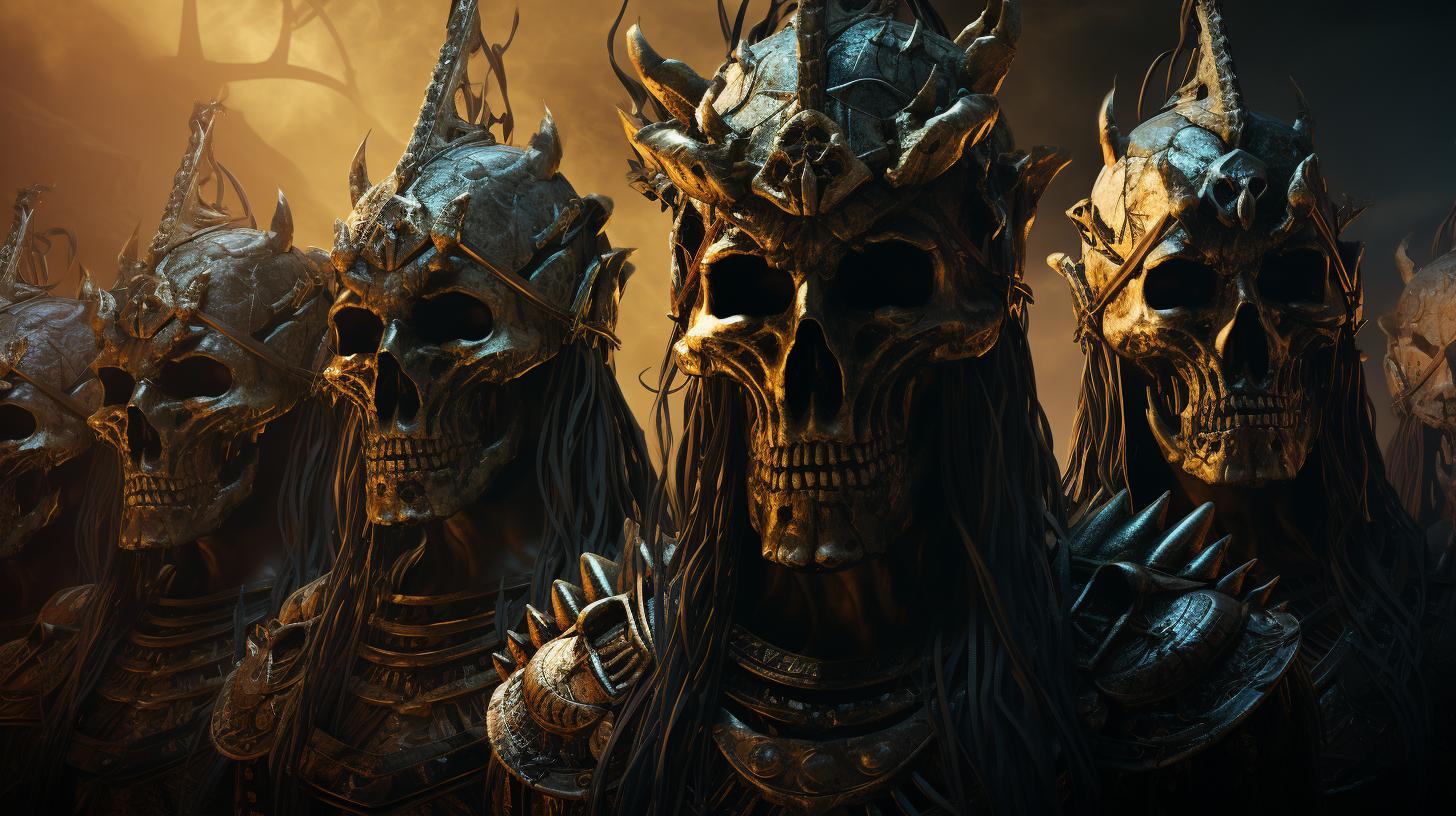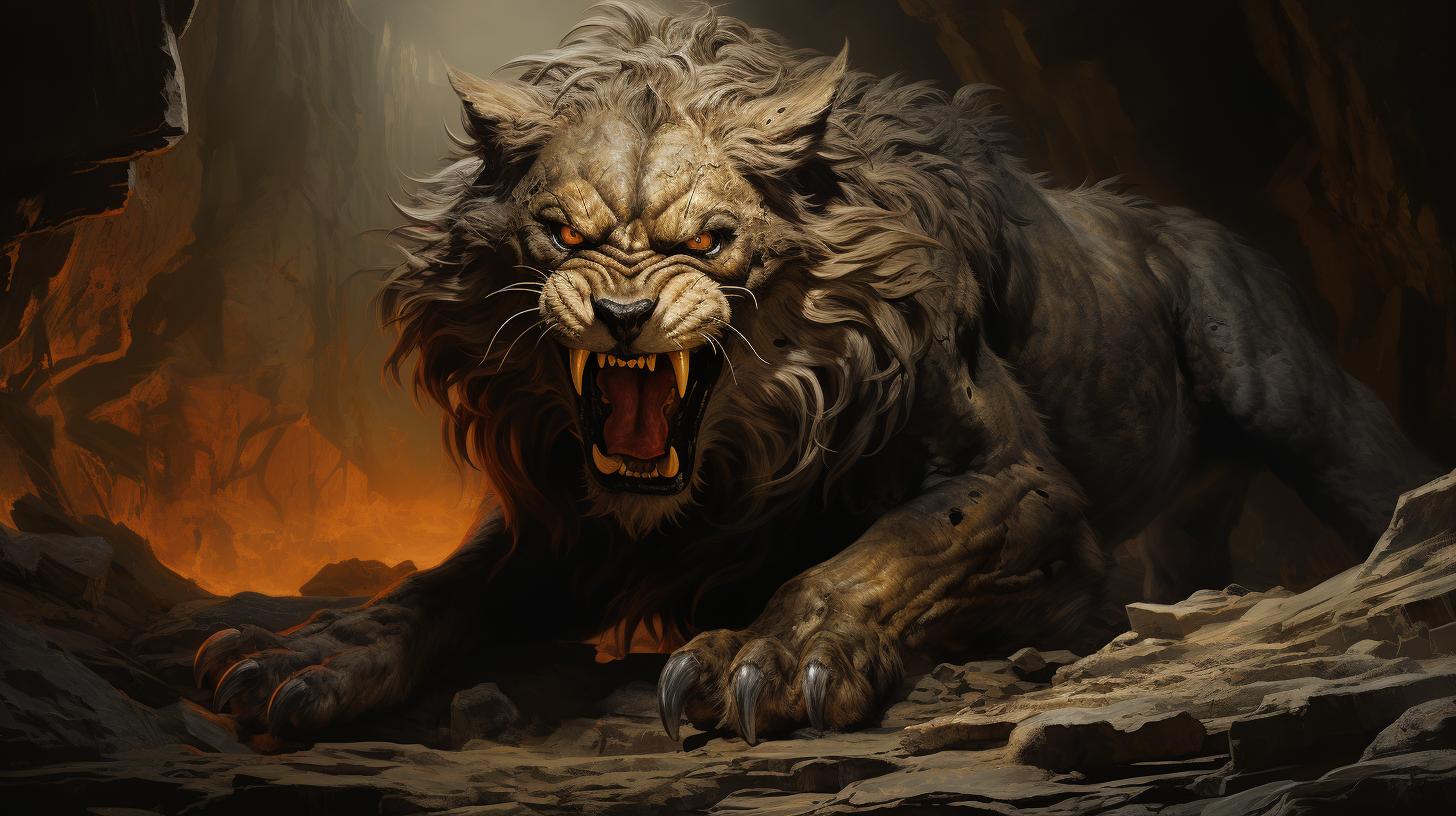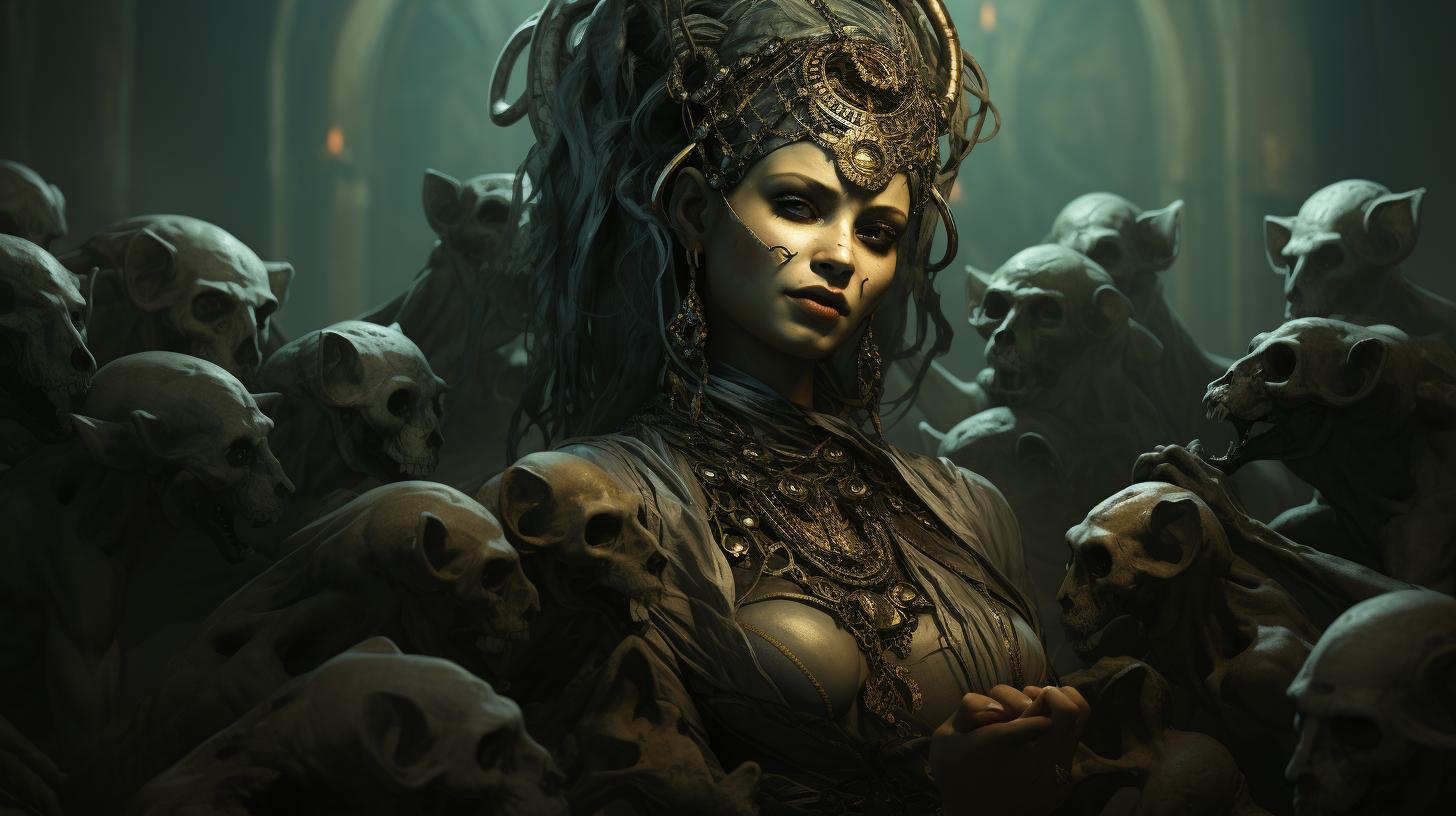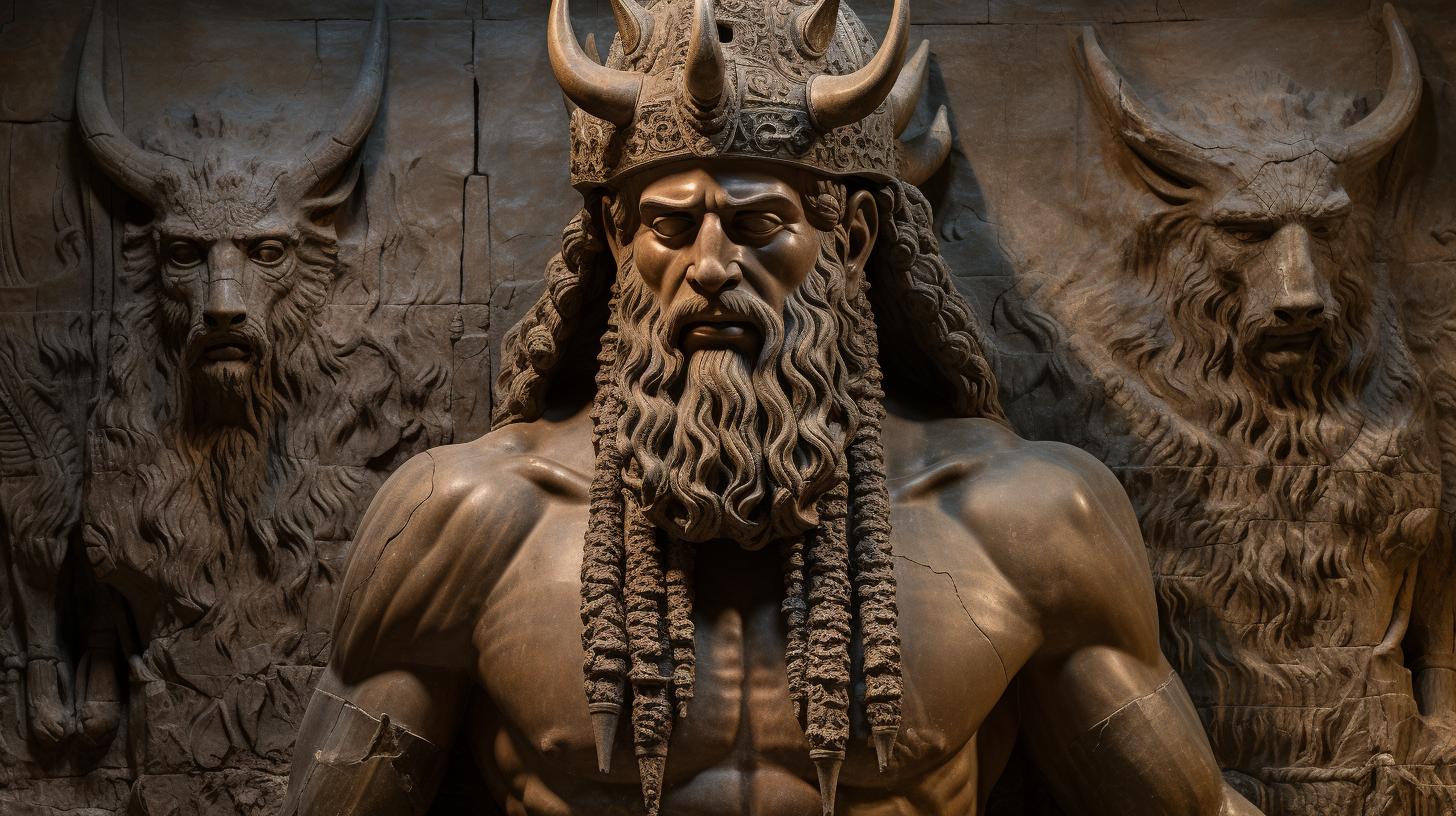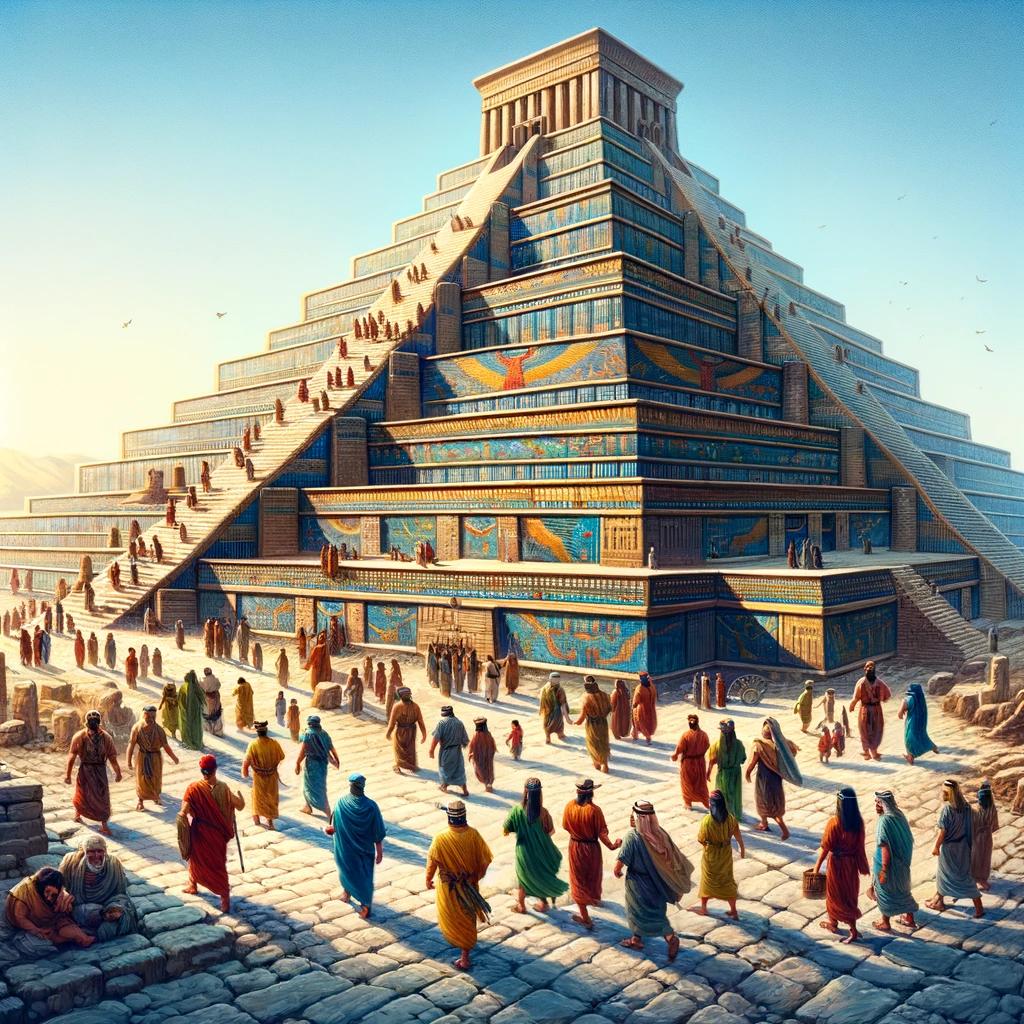Babylonian Ekimmu Vampire: Mythology and Origins Unveiled

The Babylonian Ekimmu vampire is a semi-spirit, semi-vampire creature originating from ancient Assyrian and Babylonian mythology. Believed to arise from various circumstances such as improper burial or violent death, these vengeful beings were known to possess and control others.
In Sumerian mythology, similar entities known as Edimmu existed. Today, echoes of the Ekimmu legend can be found in modern folklore, and their connection to blood feeding resembles that of vampires.
This article will explore the origins, characteristics, and cultural impact of the Babylonian Ekimmu vampire.
Origins of the Ekimmu in Babylonian Mythology
In Babylonian mythology, the belief in vengeful spirits and vampires played a significant role. These supernatural creatures were feared for their ability to harm the living and bring misfortune. The Ekimmu, a semi-spirit, semi-vampire creature, was born out of various circumstances such as improper burials, violent deaths, or dying without finding love.
The Belief in Vengeful Spirits and Vampires
The Babylonians held a strong belief in the existence of vengeful spirits and vampires, considering them as entities capable of wreaking havoc and causing harm to the living. These malevolent beings were believed to have the power to possess individuals and manipulate their actions.
Ekimmu: A Semi-Spirit, Semi-Vampire Creature
The Ekimmu was a unique creature in Babylonian mythology, combining traits of both spirits and vampires. It was considered to be a semi-spirit, capable of transitioning between the ethereal and physical realms.
With its ability to control others, the Ekimmu was a feared and vengeful entity.
Factors Leading to the Creation of Ekimmu
The creation of an Ekimmu was believed to be influenced by specific factors. Improper burial practices, violent deaths, dying without experiencing love, starvation, or drowning were some of the circumstances that could lead to the formation of an Ekimmu.
These tragic events left a mark on the souls, causing their transformation into vengeful beings.
Characteristics and Abilities of the Ekimmu
The Ekimmu, a semi-spirit, semi-vampire creature, possesses fascinating traits and abilities that distinguish it within Babylonian mythology.
Invisibility and Power to Control Others
Ekimmu are said to be completely or nearly incorporeal spirits, often referred to as “wind spirits”, capable of absorbing the life force from susceptible individuals, particularly the young and sleeping. These invisible entities possessed the power to control and manipulate the actions of others, establishing dominance over their victims.
Vengeance and Impacts on the Living
The Ekimmu were considered bearers of misfortune and death, instilling fear in the hearts of the living. Their haunting howls in the night were believed to forewarn of an impending demise.
These vengeful entities had been known to inflict diseases and provoke criminal behaviors among the living, wreaking havoc upon their victims and households.
Methods to Appease and Deal with Ekimmu
Exorcising the Ekimmu was no easy task, requiring significant effort and expertise. However, ancient beliefs suggested that funerary banquets and libations could potentially appease these malevolent spirits. Through participating in these rituals, it was believed that one could pacify the wrath of the Ekimmu and mitigate their impact on the living.
Understanding the characteristics and abilities of the Ekimmu sheds light on the nature of these enigmatic creatures and their influence on Babylonian mythology and society.
Ekimmu in Sumerian Mythology: The Edimmu
In Sumerian mythology, there existed similar entities known as the Edimmu. While sharing resemblances with the Babylonian Ekimmu, there are notable differences between the two.
The Edimmu were believed to be vengeful spirits of individuals who were not given proper burials.
Similarities and Differences with Babylonian Ekimmu
The Edimmu and the Babylonian Ekimmu both represented malevolent supernatural beings. However, while the Ekimmu was considered a semi-spirit and semi-vampire creature, the Edimmu were strictly regarded as spirits.
Both entities were believed to cause harm and possess individuals, spreading illness and criminal behavior.
Role of Edimmu as Vengeful Spirits
In Sumerian culture, the Edimmu were known for their vengeful nature towards the living. They were believed to inflict sickness and misfortune upon their victims. It was believed that these spirits could possess individuals and influence their actions, leading them to commit crimes or engage in immoral behavior.
Parallels in Causing Illness and Criminal Behavior
Like their Babylonian counterparts, the Edimmu were associated with causing illness and criminal behavior. It was believed that their presence could lead to physical ailments and psychological disturbances. The Sumerians conducted rituals such as banquets or libations to appease these spirits, seeking protection and relief from their malevolent influences.
Ekimmu in Modern Folklore and Beliefs
The legend of the Babylonian Ekimmu vampire has left a lasting impact on various aspects of modern folklore and beliefs. Let’s explore how this ancient myth has influenced vampire legends, its presence in society today, and its connection to blood feeding.
Historical Influence on Vampire Legends
The Babylonian Ekimmu, with its characteristics of vengefulness and bloodthirst, has played a significant role in shaping vampire legends. Its representation as a semi-spirit, semi-vampire creature has influenced the popular depiction of vampires as supernatural beings with a thirst for blood and the ability to control others.
Presence of Ekimmu-Like Entities in Society Today
Although rarely labeled as vampires, entities similar to the Ekimmu are believed to exist in present-day society. Often found among the homeless, these creatures are said to dwell in decrepit inner-city areas, such as abandoned buildings, steam tunnels, or sewers.
While their existence may be debated, their connection to the Ekimmu’s traits and nature cannot be overlooked.
Ekimmu and Utukku: A Connection to Blood Feeding
Another intriguing aspect is the connection between the Ekimmu and another Mesopotamian supernatural entity known as the Utukku. Both these creatures are associated with blood feeding, further reinforcing the similarities between the Ekimmu and traditional vampire lore found in other cultures.
This connection provides insights into the ancient beliefs surrounding bloodthirsty entities.
Impact and Legacy of the Ekimmu Legend
The legend of the Babylonian Ekimmu vampire has had a profound influence on supernatural entities and folklore worldwide. Its vengeful nature and connection to the undead have left a lasting impact on cultural beliefs and superstitions.
Influence on Supernatural Entities Worldwide
The Ekimmu legend, originating in ancient Mesopotamia, has served as a source of inspiration for various supernatural beings found in different cultures. These entities, whether benevolent or malevolent, often share similarities with the Babylonian Ekimmu.
Examples include the vampire lore in Eastern Europe, the aswang in Philippine folklore, and the vetalas in Hindu mythology.
Cultural Significance and Superstitions
The legend of the Ekimmu holds cultural significance as it has shaped beliefs and superstitions surrounding death, the afterlife, and the supernatural. In Babylonian and Sumerian cultures, rituals such as funerary banquets or libations were believed to appease the vengeful spirits and protect the living from their malevolence.
Similar practices can be found in other cultures that have been influenced by the Babylonian Ekimmu legend.
Relevance in the Modern Understanding of Vampires
The legend of the Babylonian Ekimmu vampire has influenced the modern understanding of vampires, particularly in terms of their association with blood feeding. The connection between Ekimmu and Utukku, who were known to consume human blood, has contributed to the portrayal of vampires as blood-drinking creatures in literature, movies, and popular culture.
This enduring connection showcases the significance of the Ekimmu legend in shaping the vampire archetype we know today.
Overall, the impact and legacy of the Ekimmu legend have transcended time and borders, leaving an indelible mark on supernatural entities, cultural beliefs, and the modern understanding of vampiric creatures.
.












